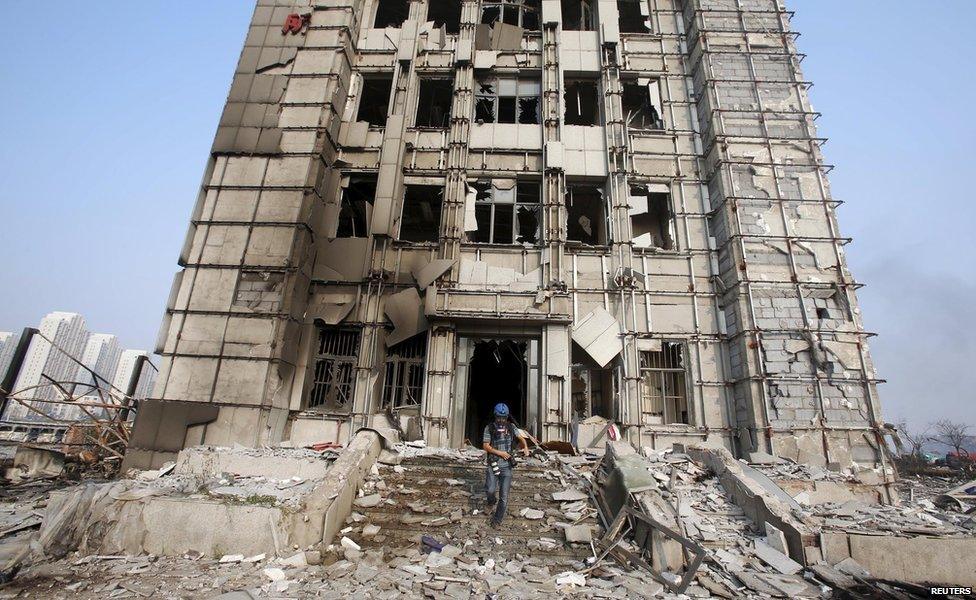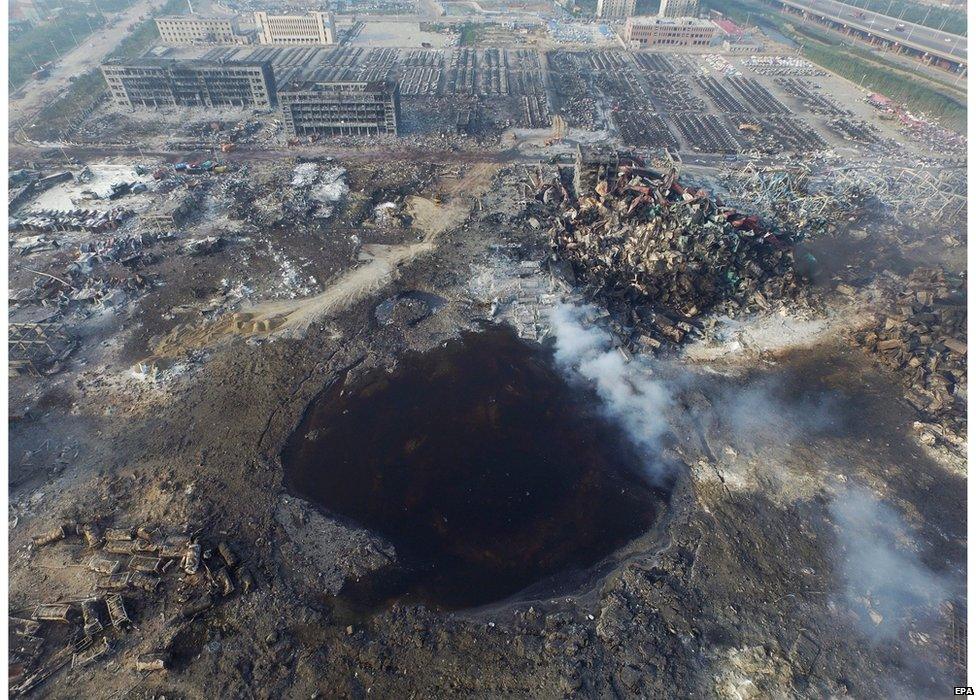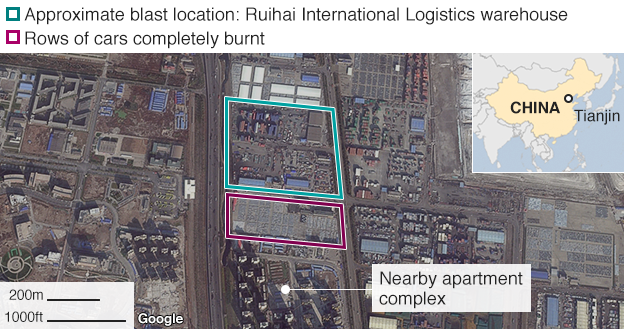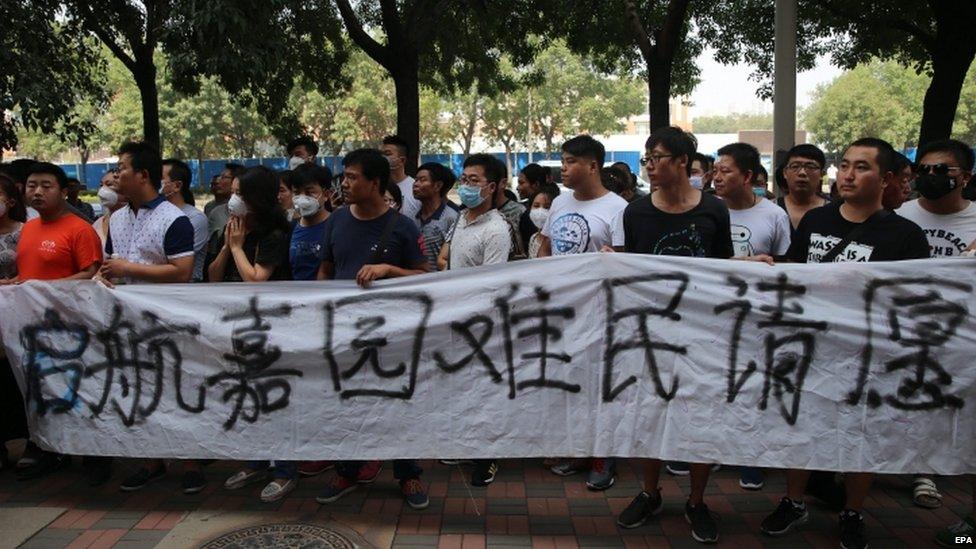China Tianjin explosions: Nearly 100 people still missing
- Published

Ninety-five people, 85 of them firefighters, are still missing four days after multiple blasts in the north-eastern port of Tianjin, Chinese authorities have said.
At least 112 people died in the blasts and hundreds have been hospitalised.
The explosions, in a warehouse containing hazardous chemicals, were so powerful that few of the recovered bodies have been identified.
Dozens of websites have been shut down for allegedly spreading rumours.
The state news agency Xinhua said 50 sites were accused of creating panic by publishing unverified information about the blasts.
Hundreds of social media accounts have also been closed down since the explosions on Wednesday.

Roy Keld, a mechanical engineer working in Tianjin, described the suburb where the blast occurred as "a ghost town"

Chinese Premier Li Keqiang arrived at the scene of the blast on Sunday, Xinhua news agency reported, external.
At a news conference on Sunday morning, officials said they had identified 24 of the dead. Experts are carrying out DNA tests to help indentify the rest of the victims.
At least 21 firefighters are among the dead. Of the 721 people injured, 25 are in critical condition and 33 are serious.
Dozens of relatives of the missing and local residents have held a number of angry protests at a hotel used for official news conferences.
They say they have not received enough information from the government about what chemicals are at the site.
Homeowners are also demanding compensation for damage to their properties.
Also on Sunday a senior military officer, Gen Shi Luze, became the first named official to confirm the presence of the toxic chemical sodium cyanide at the site, saying that "several hundred tons" had been identified at two locations in the blast zone.
Residents within a 3km radius of the blast site were evacuated on Saturday, amid fears of chemical contamination.
However, Greenpeace said that surface water tests carried out at the site had not found high levels of the chemical.

What is sodium cyanide?
The chemical sodium cyanide is white crystalline or granular powder which can be rapidly fatal, external if inhaled or ingested, as it interferes with the body's ability to use oxygen.
It is mostly used in chemical manufacturing, for fumigation and in the mining industry to extract gold and silver.
It is soluble in water, and absorbs water from air, and its dust is also easy to inhale. When dissolved or burned, it releases the highly poisonous gas hydrogen cyanide, external.
Potent chemical mix behind blasts

Troops equipped with chemical warfare protection entered the site of the blasts on Saturday, reportedly to deal with the sodium cyanide.
Officials have previously confirmed the presence of calcium carbide, potassium nitrate and sodium nitrate. Calcium carbide reacts with water to create the highly explosive acetylene.
The operators of the Tianjin site have been accused of violating safety rules.
The Chinese government has ordered officials to make nationwide checks on dangerous chemicals and explosives and to "crack down unwaveringly on illegal activities to ensure safety".

Some local residents are angry about what they see as a lack of information from officials about the blast site

Are you in Tianjin? Have you been affected by the explosions? You can share your comments by emailing haveyoursay@bbc.co.uk, external.
Please include a contact number if you are willing to speak to a BBC journalist. You can also contact us in the following ways:
Whatsapp: +44 7525 900971
Send pictures/video to yourpics@bbc.co.uk, external
Tweet: @BBC_HaveYourSay, external
Send an SMS or MMS to +44 7624 800 100